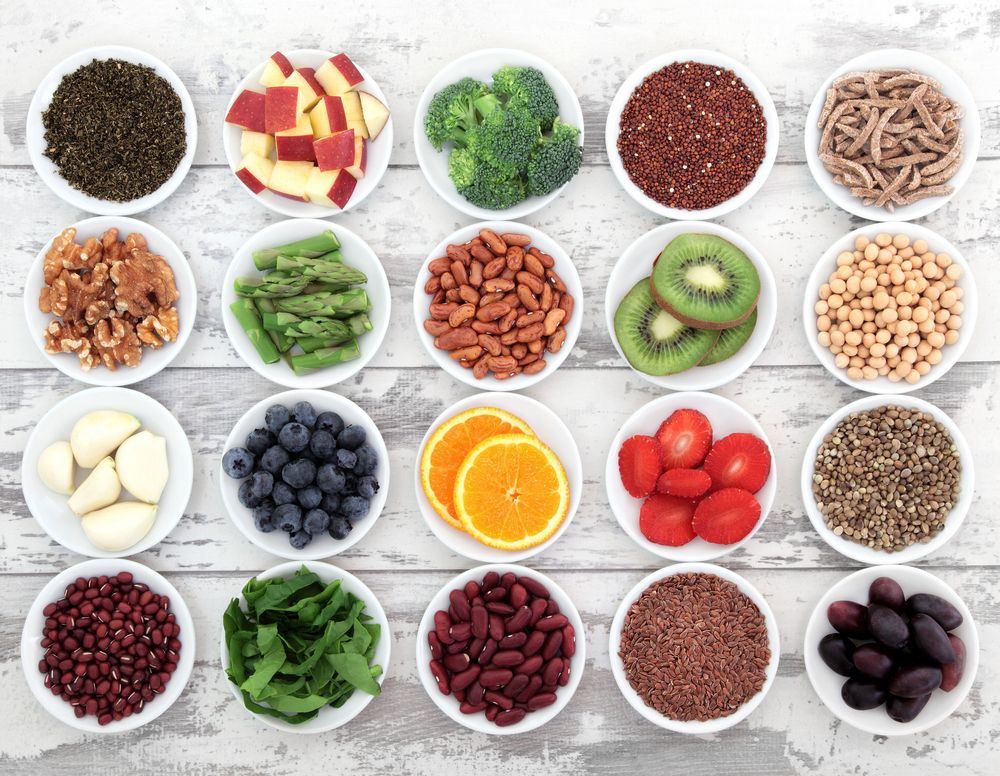Nourishing your body with a diverse range of nutrients is crucial because no single food can fulfill all your nutritional requirements for optimal health and well-being. Incorporating a variety of foods into your diet is essential as each one offers distinct nutritional advantages.
Although all foods contribute to your overall health, certain superfoods stand out for their exceptional nutritional value. Packed with vitamins, minerals, antioxidants, and other essential nutrients, these superfoods are supported by substantial scientific evidence for enhancing the nutritional profile of your diet and lowering the risk of particular chronic conditions.
By integrating these nutrient-rich foods into your everyday meals and snacks, you can nourish your body with the essential elements it requires to flourish. Whether it's the heart-boosting omega-3 fatty acids in salmon or the gut-nurturing probiotics in yogurt, these 25 superfoods pledge to support you on your path to a healthier, more joyful you in 2024.
1) Blueberries
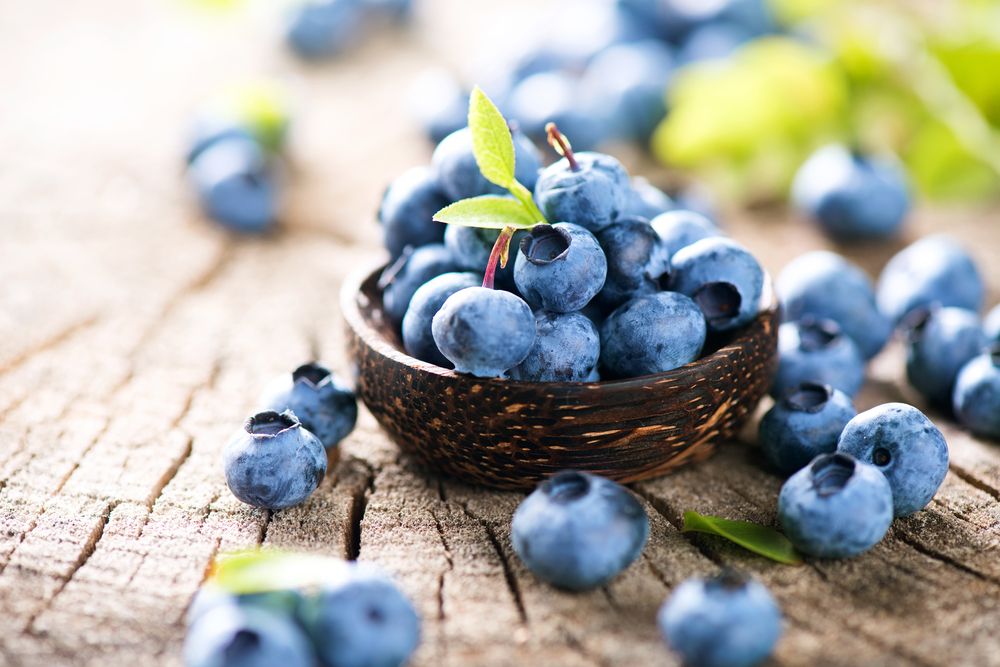
Blueberries have long been hailed as a "superfood" due to their exceptional antioxidant content, surpassing that of many other foods. With over 1,600 studies examining their numerous health advantages, blueberries are a nutritional powerhouse. These blue-hued berries boast a wealth of anthocyanins, a distinctive group of phytonutrients responsible for their color. Research published in Advances in Nutrition suggests that anthocyanins contribute to lowering blood pressure, decreasing the risk of heart disease and type 2 diabetes, regulating blood sugar levels, promoting eye health, and providing neuroprotection as you age.
2) Herbs and Spices
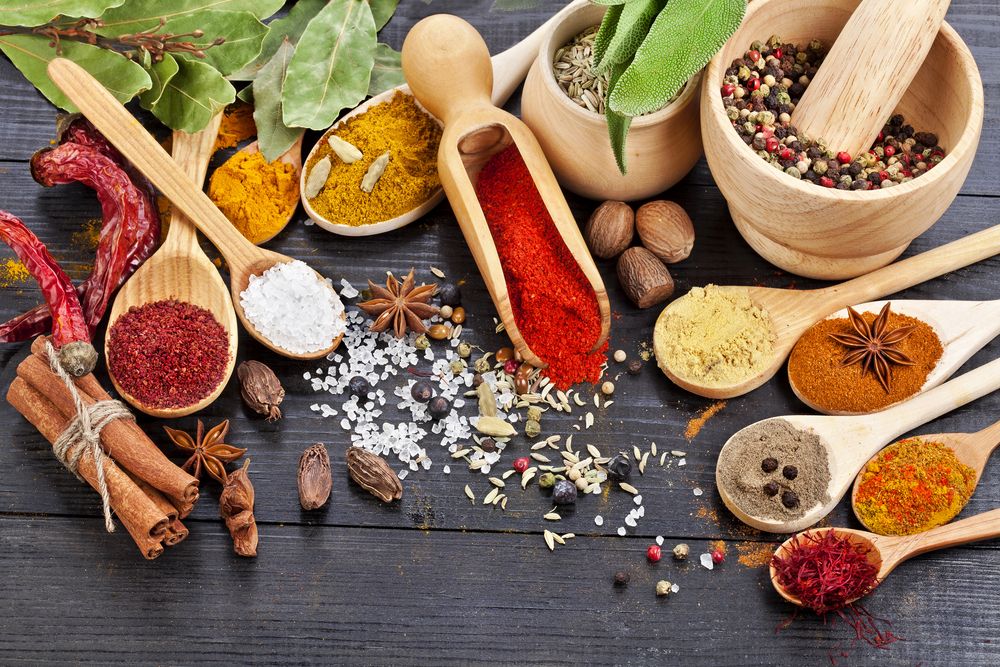
Sprinkling a hint of fragrant herbs or a splash of bold spices onto your meals and snacks is a delightful method to incorporate superfoods into your diet. Herbs and spices have been part of culinary traditions since 5,000 B.C., with their medicinal properties recognized since ancient times. Research published in Genes & Nutrition highlights some of the established benefits of herbs and spices, including their antioxidant, antimicrobial, and anti-inflammatory properties. Additionally, they offer protection against cardiovascular disease, cognitive decline, and type 2 diabetes.
3) Lentils

With their low calorie and fat content coupled with high protein, fiber, and potassium levels, lentils are a nutritional powerhouse known to aid in blood sugar reduction and lowering the risk of diabetes. A study discovered that lentils not only improve blood sugar response during the meal they're consumed but also at the subsequent meal, four hours later. Moreover, lentils contribute to heart health by reducing LDL (bad) cholesterol, minimizing the risk of heart attacks, and reducing inflammation in the arteries. Remarkably, a national survey revealed that individuals consuming lentils four times or more per week had a 22 percent lower risk of coronary heart disease compared to those consuming them less than once a week.
4) Dark Chocolate

Indulging in dark chocolate containing 70% or more cacao solids isn't just a delicious treat but also a remarkably healthy choice. Cacao is abundant in polyphenol flavanols, renowned for enhancing blood flow, reducing blood clots and blood pressure, thereby potentially lowering the risk of heart attacks or strokes. Furthermore, these phenolic compounds possess anti-cancer properties and may decrease the risk of metabolic disorders, as per findings from a review study published in Food and Chemical Toxicology. To maximize flavanol intake, opt for dark chocolate with the highest cacao percentage. Alternatively, incorporating unsweetened cocoa powder into your diet is another effective way to reap the benefits of these valuable flavanols.
5) Strawberries

Strawberries boast an abundance of antioxidants along with fiber, potassium, folate, and flavonoids, making them a formidable defense against chronic diseases. Remarkably, these crimson gems surpass oranges in vitamin C content, providing approximately 160 percent of your daily requirement in just one serving. What's more, a single serving of fresh strawberries (equivalent to 8 berries or 1 cup) contains a mere 50 calories. With proven heart-protective properties, strawberries have been associated with reduced risks of heart attack and stroke by lowering LDL cholesterol, inflammation, and blood pressure levels. A study involving middle-aged women revealed that those consuming at least three servings per week of anthocyanin-rich strawberries (along with blueberries) experienced a reduction in heart attack risk by over 30 percent.
6) Eggs

Eggs stand out as the benchmark for high-quality protein, boasting a plethora of nutrients that may contribute to the prevention of various chronic diseases. Packed with over 10 essential nutrients, including iron, vitamin D, zinc, and lutein, eggs offer a substantial 6 grams of top-tier protein. Vitamin D, a nutrient not abundant in many foods, holds immense importance as it has been linked to protection against several conditions such as certain cancers, diabetes, and autoimmune disorders. Enjoying eggs as part of your breakfast routine might aid in prolonging satiety, regulating blood sugar levels, and reducing calorie intake. A study published in the journal Nutrients revealed that eggs promote muscle protein synthesis and decrease fat mass, potentially supporting an optimal body composition.
7) Greek Yogurt

Looking to boost your nutrient intake while shedding some extra pounds? Look no further than Greek yogurt! Greek yogurt provides the same bone-strengthening calcium content—nearly a third of your daily requirement—but boasts approximately double the protein content of regular yogurt, with significantly lower sugar levels. Additionally, research suggests that yogurt consumption may facilitate weight loss and management, attributed to its protein, probiotics, and essential nutrients. A study published in the International Journal of Obesity revealed that individuals consuming more than three servings of yogurt weekly were less prone to weight gain and exhibited smaller waistlines compared to those consuming less than one serving per week.
8) Beans
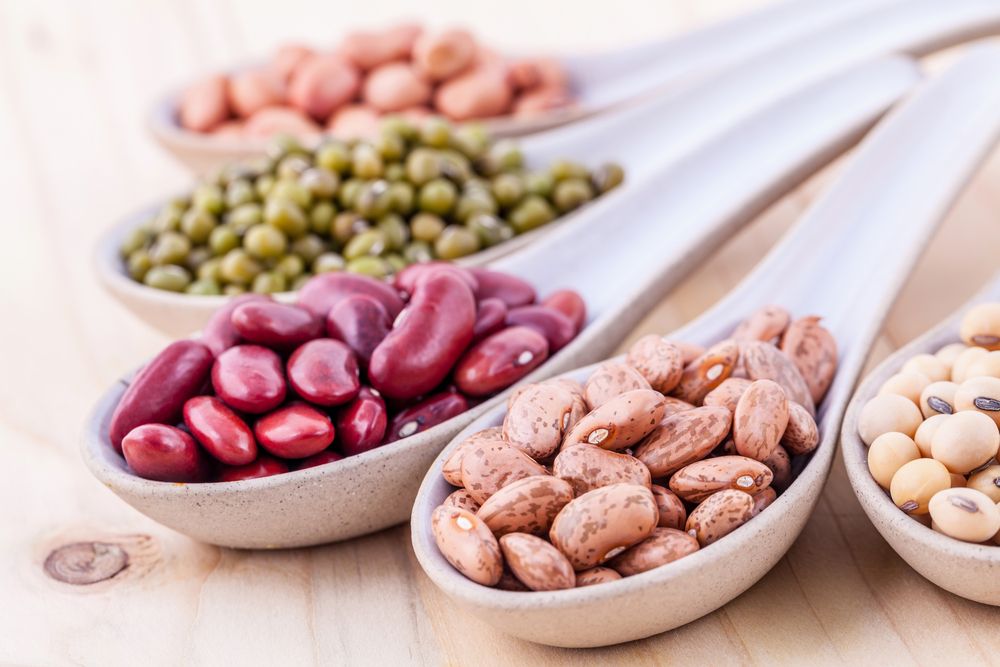
Beans stand out as top-tier sources of fiber and protein that are slow to digest. According to a study published in the Journal of Human Nutrition and Dietetics, overweight individuals who incorporated a bean-rich diet experienced a weight loss of nearly 10 pounds over 16 weeks, alongside improvements in their blood cholesterol levels. Moreover, beans may offer protection against breast cancer. A population-based study published in Cancer Medicine revealed that both pre-menopausal and postmenopausal women with the highest bean intake and fiber from beans witnessed a notable 25-36% reduction in breast cancer risk compared to those with the lowest bean consumption. Interestingly, no similar associations were observed for fiber from grains, vegetables, or fruits combined, or for total produce intake in this study.
9) Extra Virgin Olive Oil
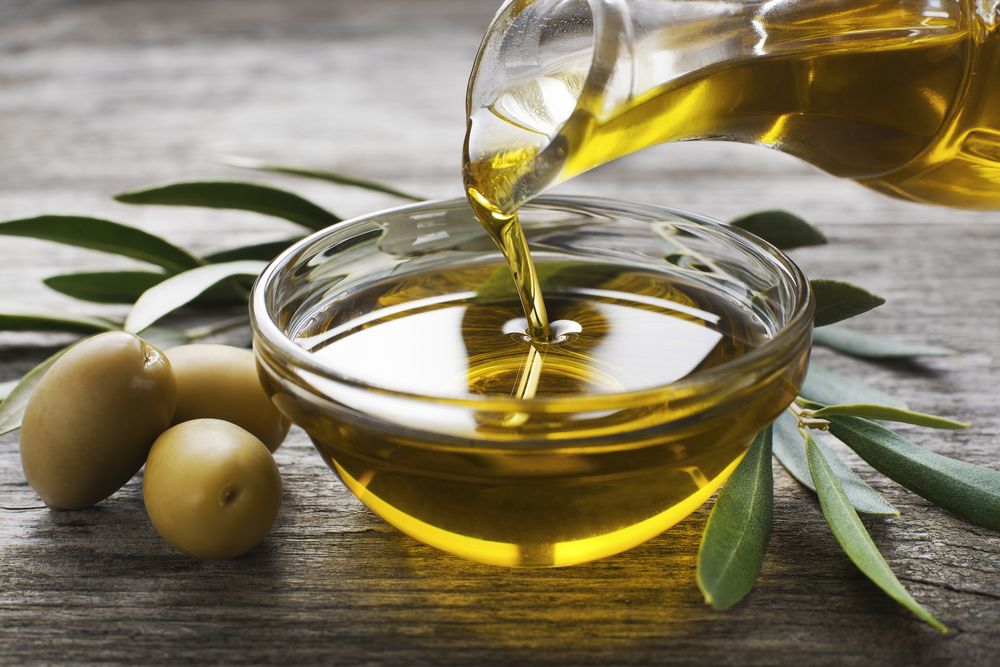
Olive oil, a cornerstone of the traditional Mediterranean Diet, is renowned for its abundance of healthy monounsaturated fats and numerous bioactive compounds. Incorporating olive oil as your primary fat source in cooking and dressings can effectively reduce overall saturated fat intake, thereby enhancing health biomarkers. Extra virgin olive oil, in particular, is recognized for its high polyphenol content. Research indicates that polyphenols, found abundantly in extra virgin olive oil, play a crucial role in protecting against cardiovascular and neurodegenerative diseases, as well as cancer. The antioxidant properties of polyphenols are closely linked to their biological activity, as outlined in a review article published in the International Journal of Molecular Sciences.
10) Red Raspberries
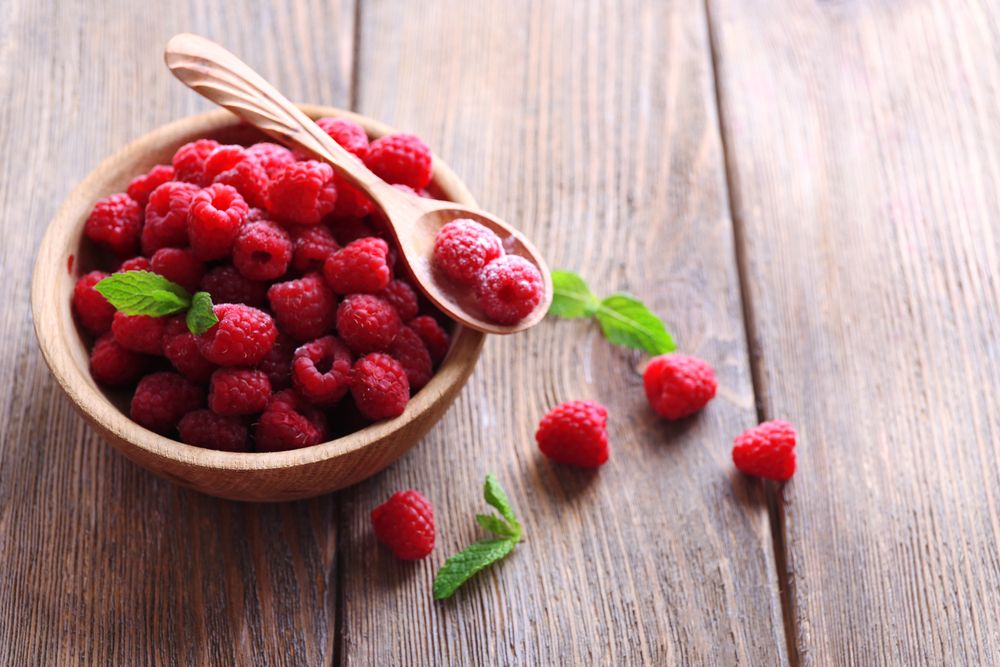
Red raspberries stand out as one of the most fiber-rich foods available, with a single cup offering a generous 8 grams of fiber. Beyond their impressive fiber content, these delicious berries are rich in essential nutrients such as vitamin C, manganese, vitamin K, vitamin E, magnesium, potassium, and more. A review article published in Advances in Nutrition underscores the potential health benefits of red raspberries, suggesting they may contribute to the prevention of cardiovascular disease, diabetes, obesity, and Alzheimer's disease.
11) Salmon (or other Fatty Fish)
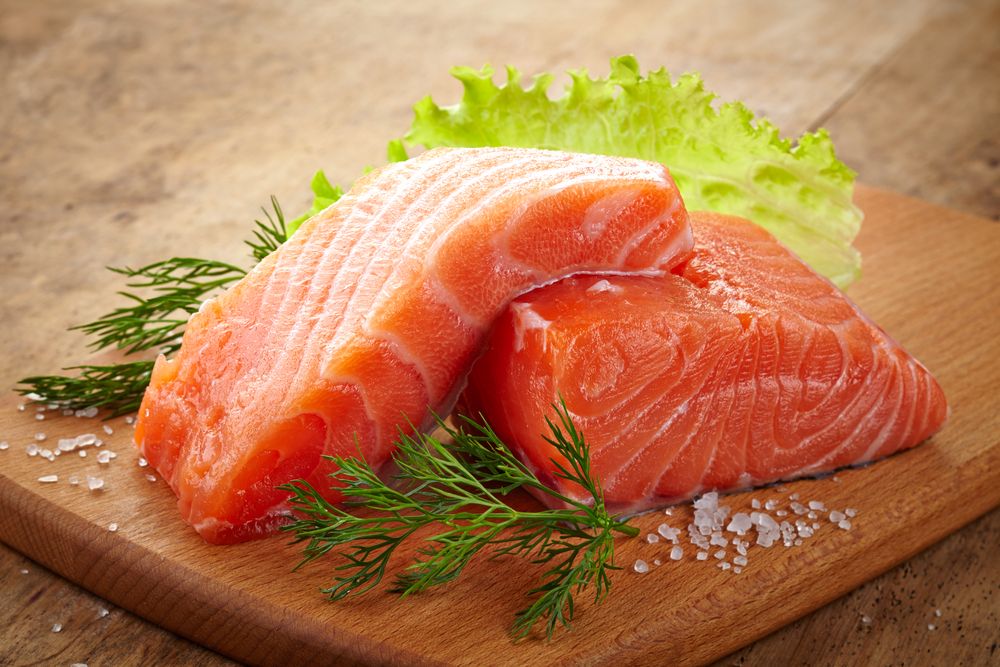
Salmon emerges as a premier natural reservoir of omega-3 fats (EPA and DHA), renowned for their potential to mitigate heart disease risk, alleviate inflammation, enhance blood vessel function, and diminish the likelihood of cardiovascular ailments. Furthermore, the abundant high-quality protein in salmon facilitates muscle and tissue recuperation, fostering overall vigor and resilience. Laden with essential vitamins like B12 and D, alongside minerals such as selenium, salmon bolsters immune function and promotes bone health. According to findings published in Food Chemistry, fish, including salmon, exhibits multifaceted health benefits, including anti-inflammatory properties, wound healing support, neuroprotection, cardioprotection, and liver health enhancement.
12) Arugula
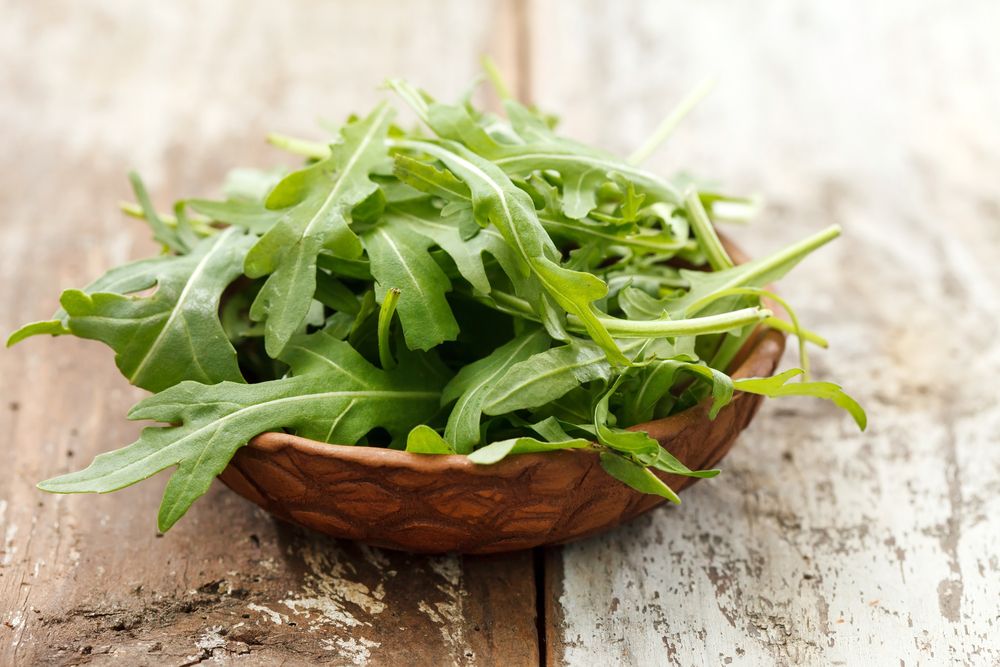
Arugula, a time-honored medicinal herb, remains a sought-after leafy green in modern culinary practices. Typically enjoyed fresh in Western dishes, it boasts a plethora of bioactive secondary metabolites. Notably, arugula is abundant in erucin, a compound akin to sulforaphane, renowned for its potential anti-cancer effects. Studies, such as those published in PLoS One, have demonstrated erucin's ability to impede the proliferation of breast cancer cells in laboratory models.
13) Tomatoes
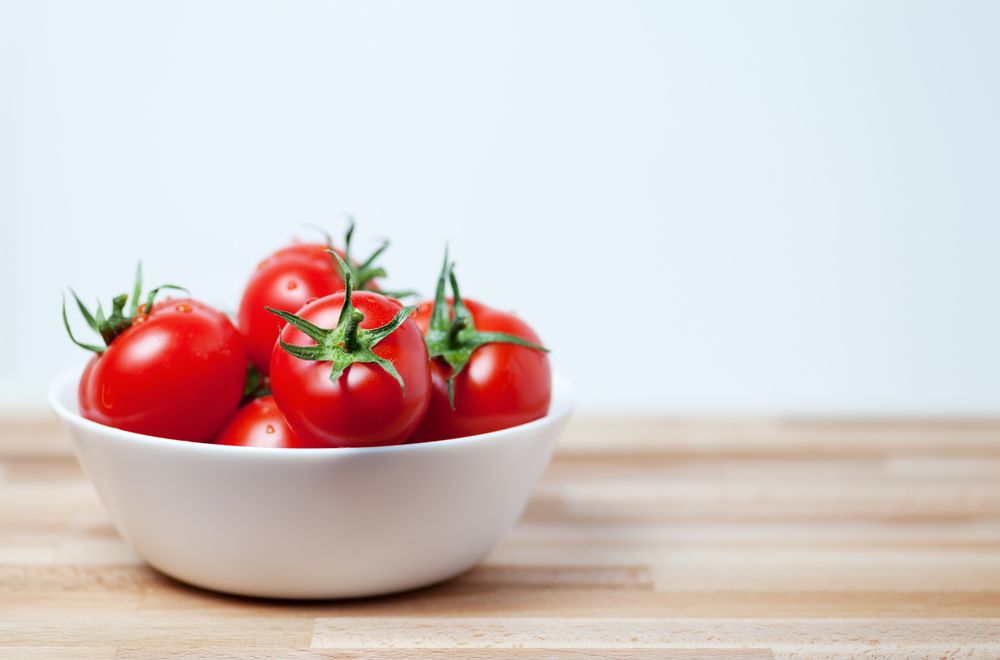
Tomatoes are frequently lauded as nutritional powerhouses due to their abundant reserves of vital nutrients such as vitamin C and folate. Additionally, they offer a rare gem: lycopene, a carotenoid known for its antioxidant properties, which lend tomatoes their vibrant red hue. With over 1,600 published studies exploring their health advantages, tomatoes have garnered attention for potential anti-cancer properties attributed to lycopene. Furthermore, research indicates that tomatoes may aid in lowering the risk of cardiovascular diseases, while also protecting against premature aging of the skin caused by sun exposure.
14) Pistachios
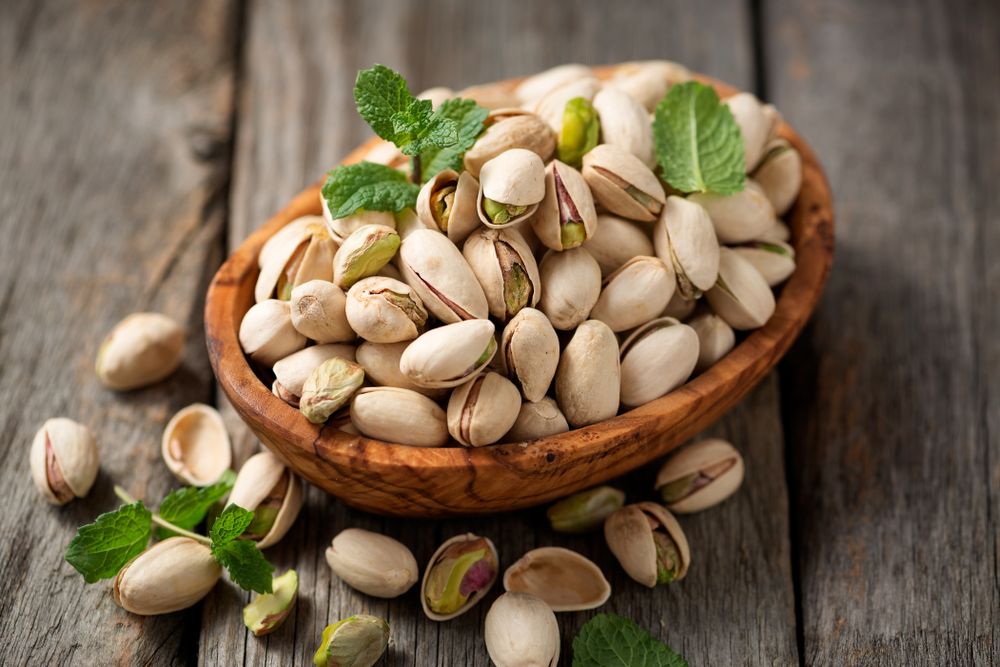
Pistachios stand out as one of the top choices among nuts for their health benefits. A single one-ounce serving, roughly equivalent to 49 nuts, offers a wealth of vitamins, minerals, and essential nutrients. Notably, the FDA has endorsed a health claim indicating that consuming 1.5 ounces daily of most nuts, including pistachios, within a diet low in saturated fat and cholesterol, can potentially decrease the risk of heart disease. With a balanced combination of protein and fiber, pistachios contribute to prolonged satiety, aiding in managing hunger levels effectively.
15) Oranges (and other citrus)

Rich in vital vitamins and minerals, especially vitamin C, oranges play a crucial role in supporting a robust immune system and mitigating systemic inflammation, which is often linked to chronic ailments. A study highlighted in Frontiers in Immunology emphasized that citrus fruits, including oranges, are abundant sources of vitamin C and folate, both of which play essential roles in maintaining the integrity of immune barriers and bolstering the function of various immune cells. Additionally, oranges have been shown to contribute to reducing blood pressure and levels of harmful LDL-cholesterol.
16) Tea

Tea, standing as the second most consumed beverage globally, follows water and boasts an extensive body of research, with over 17,000 published articles delving into its health and nutritional advantages. Derived from the Camellia sinensis plant, black, green, and oolong teas share a rich reservoir of flavonoids and other bioactive compounds, imparting numerous benefits such as mitigating the risk of heart disease, certain cancers, liver ailments, and UV-induced skin aging. Collective evidence suggests that tea consumption correlates with enhanced longevity and well-being. Notably, a comprehensive analysis, detailed in Molecular Nutrition & Food Research, amalgamating findings from over 40 studies, revealed that drinking 2-3 cups of tea daily substantially decreased the risk of heart disease, stroke, type 2 diabetes, and premature mortality.
17) Brussels Sprouts

Brussels sprouts, often referred to as "mini cauliflower" due to their botanical relation to cauliflower and broccoli, offer remarkable nutritional value. Packed with essential vitamins such as C and K, along with fiber, folate, iron, and potassium, they also deliver a plethora of beneficial antioxidants. Research highlighted in Frontiers in Nutrition suggests that Brussels sprouts contain sulfur-containing compounds, potentially offering protective effects against various cancers. Moreover, they are recognized for their contribution to heart health and supply essential carotenoids crucial for maintaining optimal eye health as individuals age.
18) Cauliflower
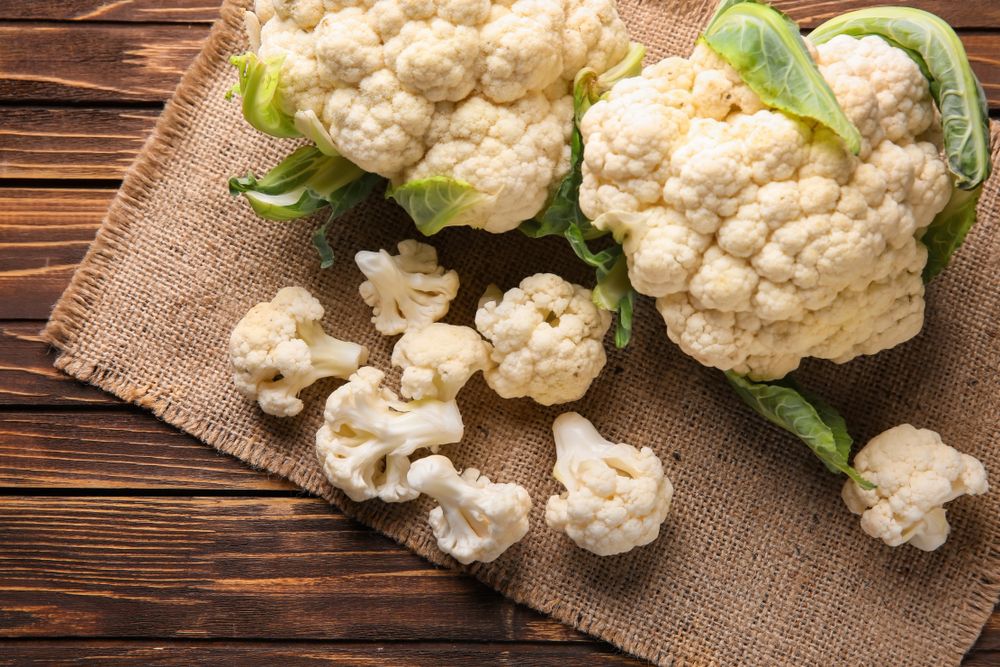
Cauliflower, a prominent member of the Brassica family of vegetables, offers a plethora of bioactive compounds and essential nutrients essential for promoting health and longevity, as indicated by research findings. Whether consumed raw, roasted, "riced," or mashed, this robust cruciferous vegetable serves as a versatile dietary staple, aiding in the reduction of chronic disease risks. A single serving of cauliflower supplies 100% of the daily requirement for vitamin C and serves as a notable source of folic acid, magnesium, and fiber. Moreover, owing to the presence of sulforaphane and other bioactive compounds inherent in cruciferous vegetables, cauliflower is associated with anti-cancer and heart-healthy benefits.
19) Kale
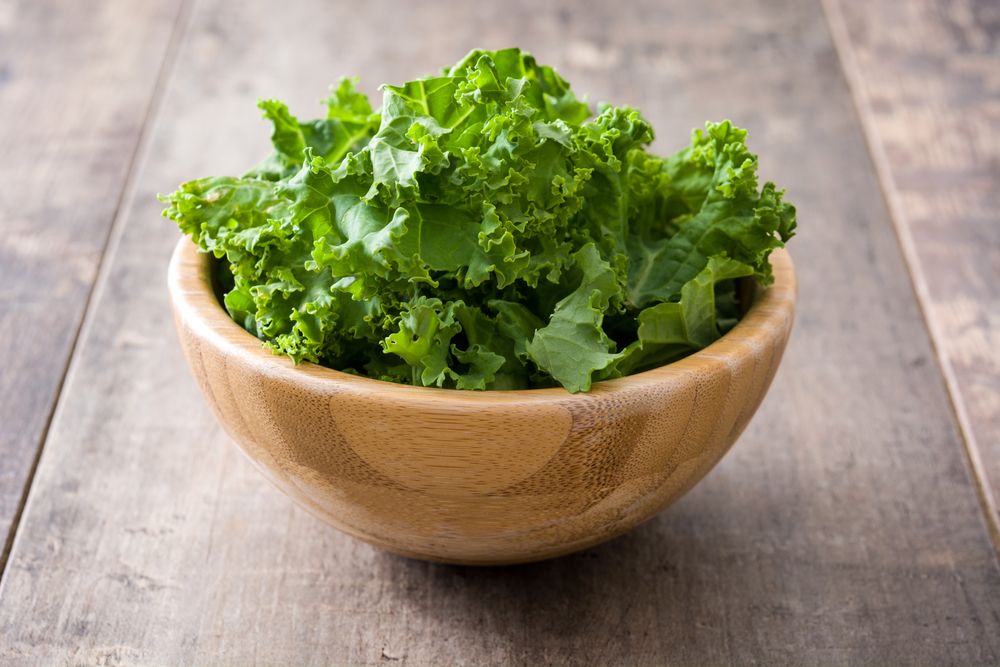
Distinguished as the "Queen of Greens," kale, a cruciferous vegetable, shares many of the renowned benefits characteristic of this distinctive vegetable family. A single serving (equivalent to 3 cups fresh) of this regal green yields a mere 20 calories but delivers an abundance of health-enhancing nutrients. Kale emerges as a commendable source of vitamins A and C, potassium, vitamin K, calcium, folate, fiber, carotenoids, and magnesium. Findings from a study featured in the journal Food Science & Technology suggest that kale exhibits protective effects against coronary artery disease, boasting anti-inflammatory, anti-cancer, and anti-microbial properties. Furthermore, this leafy green is teeming with beneficial antioxidants, which hold promise in safeguarding against age-related chronic diseases.
20) Oats
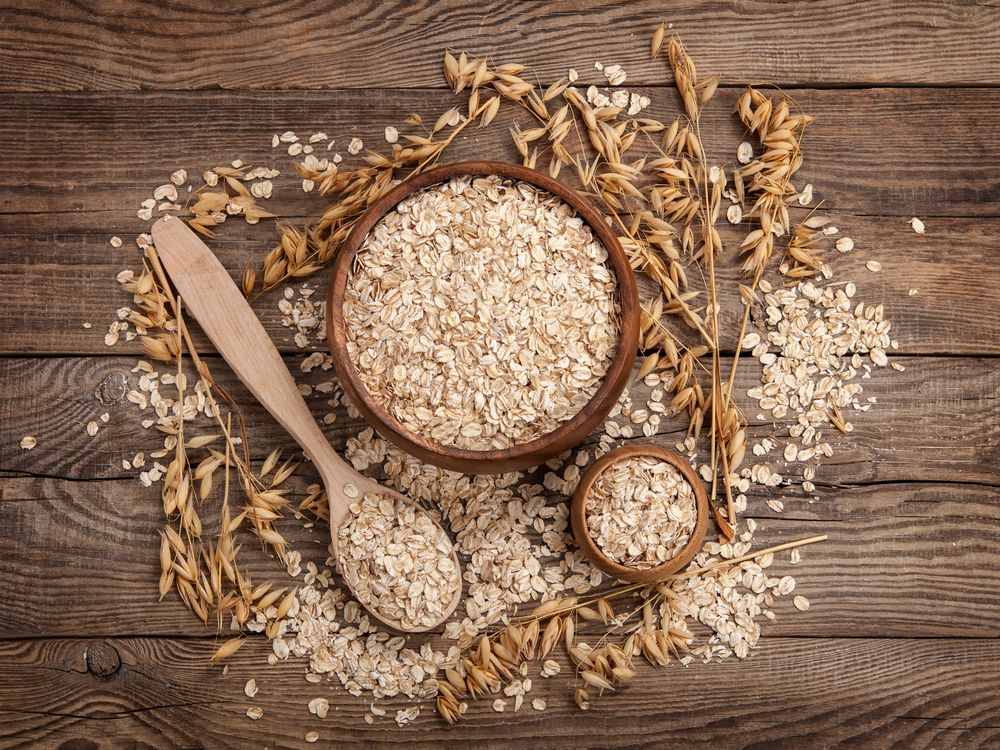
Oats stand out as a 100% whole grain food, naturally brimming with nutrients. They offer a unique type of fiber called beta-glucan, renowned for its ability to enhance satiety, regulate blood sugar levels, and lower harmful LDL-cholesterol levels. A review study featured in the journal Foods highlighted oats' substantial content of various bioactive compounds, including phenolic acids, sterols, and avenanthramides. Additionally, oats boast an array of trace minerals such as manganese, copper, iron, and zinc. Notably, a half-cup serving of oats provides 5 grams of protein and 4 grams of fiber, surpassing many other grain-based foods in nutritional value. In recognition of its health benefits, oats received the first "food-specific" health claim from the FDA in 1997, stating that soluble fiber from foods like oats, when consumed as part of a diet low in saturated fat and cholesterol, may reduce the risk of heart disease.
21) Peanuts and Peanut Butter
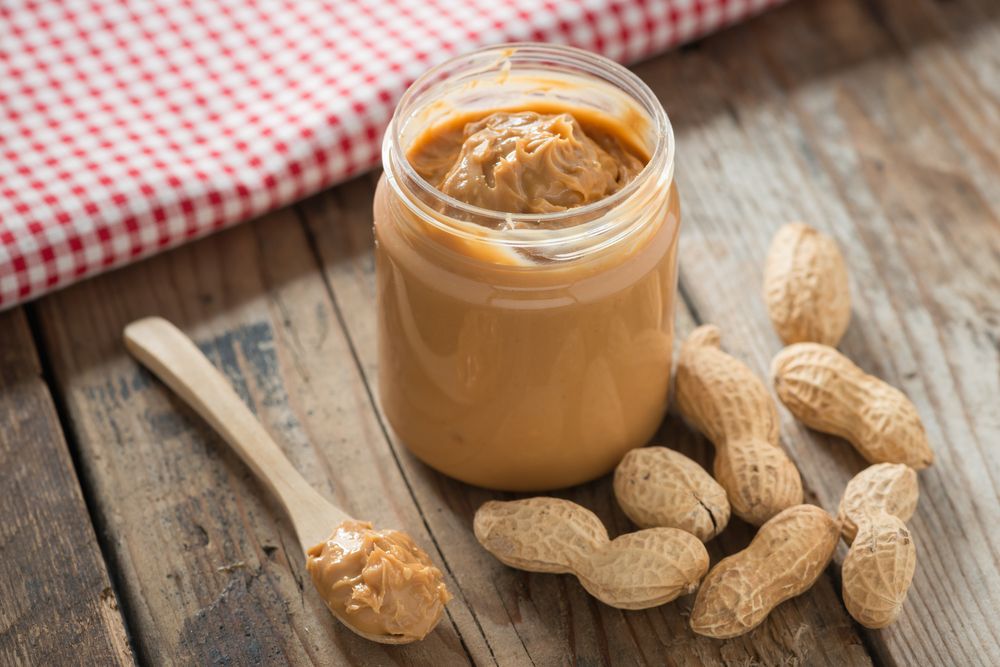
Peanuts offer a wealth of essential nutrients, comprising 19 key elements including protein, fiber, unsaturated fat, magnesium, vitamin B6, vitamin E, and iron. Research published in the Journal of Nutrition revealed that individuals who incorporated higher amounts of nuts and peanuts into their diets enjoyed a significant 35% decrease in the risk of cardiovascular disease compared to those consuming lower quantities. Furthermore, additional studies suggest that peanuts contribute to stabilizing blood sugar levels and may offer protective effects against the development of type 2 diabetes.
22) Seeds (Flaxseeds, Pumpkin Seeds, Chia Seeds, Hemp Seeds, etc)
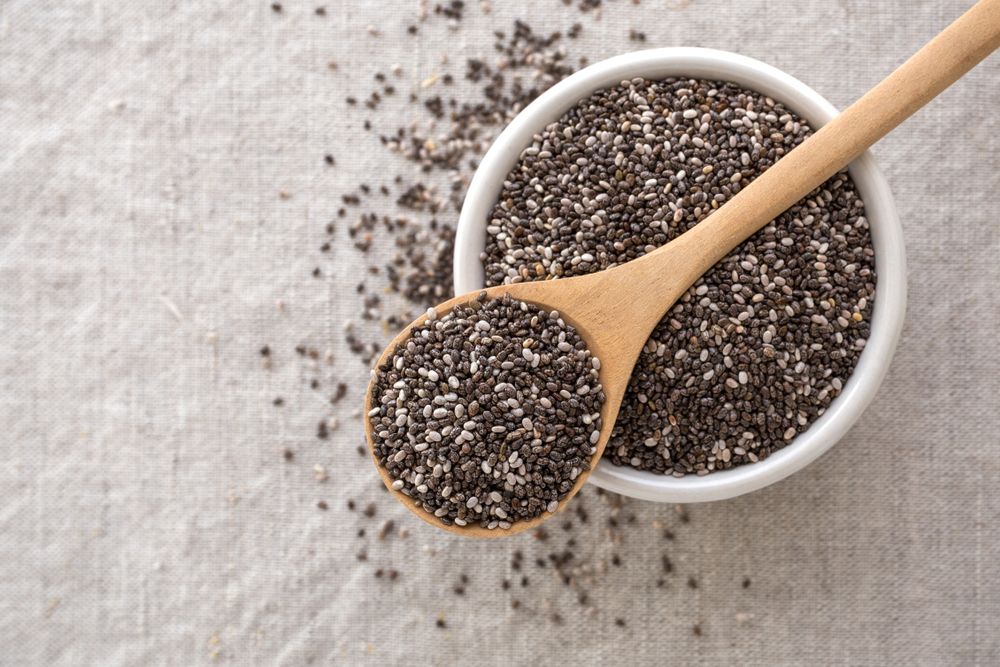
Seeds stand out as superfoods, boasting a rich array of beneficial nutrients. They serve as excellent sources of fiber, magnesium, manganese, potassium, vitamin E, unsaturated fats, and copper. Additionally, seeds are a valuable plant-based protein source, with flax and chia seeds particularly notable for their alpha-linolenic acid content, a plant-based omega-3 fatty acid. Research indicates that seeds, such as chia seeds, contain a diverse range of antioxidant polyphenols, which contribute to various health benefits including promoting heart health, reducing inflammation, combating diabetes and obesity, and potentially preventing cancer.
23) Walnuts
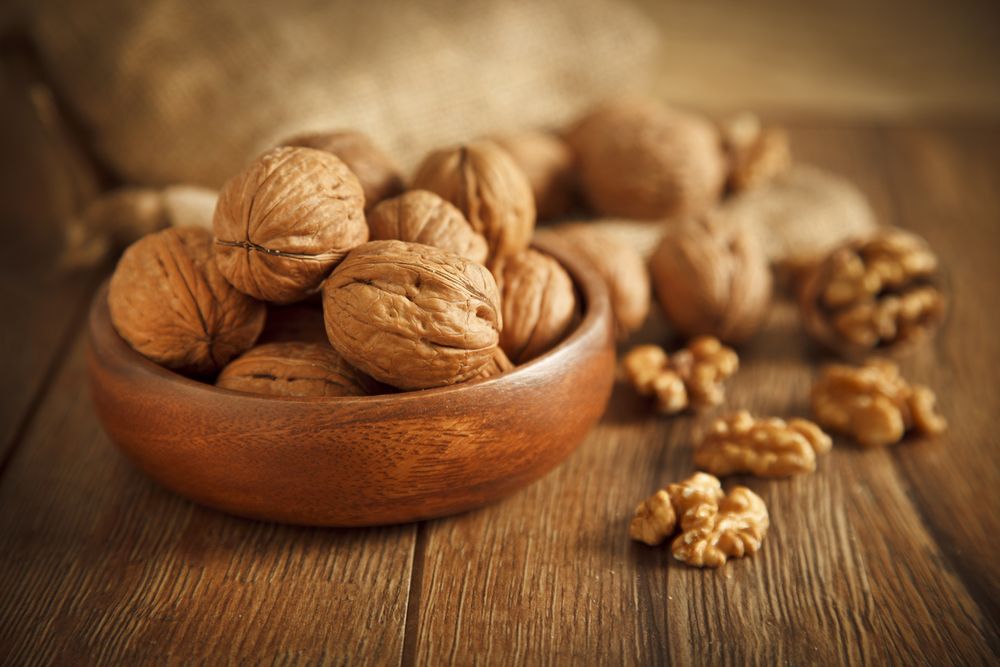
An ounce of walnuts, equivalent to about 14 halves, presents a treasure trove of essential nutrients vital for maintaining overall health. Alongside providing alpha-linolenic acid (ALA), a crucial plant-based omega-3 fatty acid, this serving offers a potent combination of protein and fiber, which can promote feelings of satiety. Research published in the Journal of Nutrition revealed that incorporating walnuts into the diet led to reductions in harmful LDL-cholesterol levels and lowered blood pressure.
Walnuts stand out as one of the finest plant-based sources of omega-3s, with a one-ounce serving delivering a substantial 2.5 grams of ALA. A growing body of scientific research underscores the numerous benefits of these omega-3 fatty acids for both brain and heart health, while also exerting anti-inflammatory effects throughout the body. Additionally, studies suggest that regular consumption of walnuts may mitigate the risk or progression of various brain disorders, including Parkinson's disease, stroke, and depression, as well as cardiovascular disease and type 2 diabetes.
24) Beets
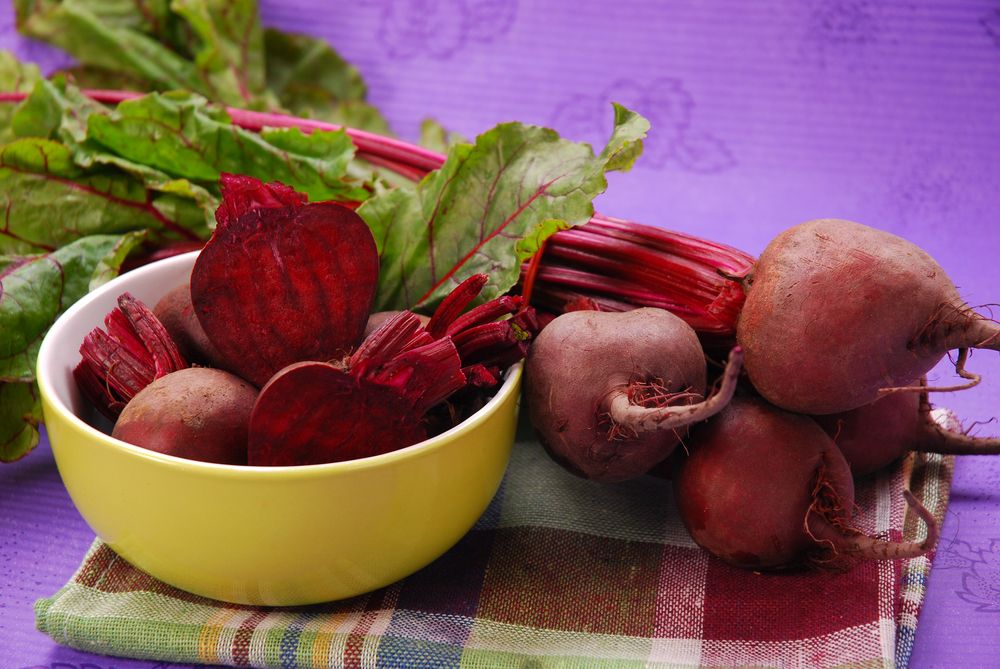
Beets offer a rich array of essential nutrients, including potassium, folate, fiber, antioxidants, nitrate, betalains, and betacyanins, which impart their vibrant red hue. Notably, beets contain nitrates, which contribute to the relaxation and dilation of blood vessels, thereby helping to lower blood pressure. Early research suggests that beets may enhance athletic performance by improving cardiovascular function. Additionally, findings published in the journal Nutrients indicate that beetroot consumption can reduce oxidative stress and inflammation. The betalain pigments found in beets further provide antioxidant, anti-inflammatory, and potential anti-cancer properties, further highlighting their health-promoting benefits.
25) Broccoli
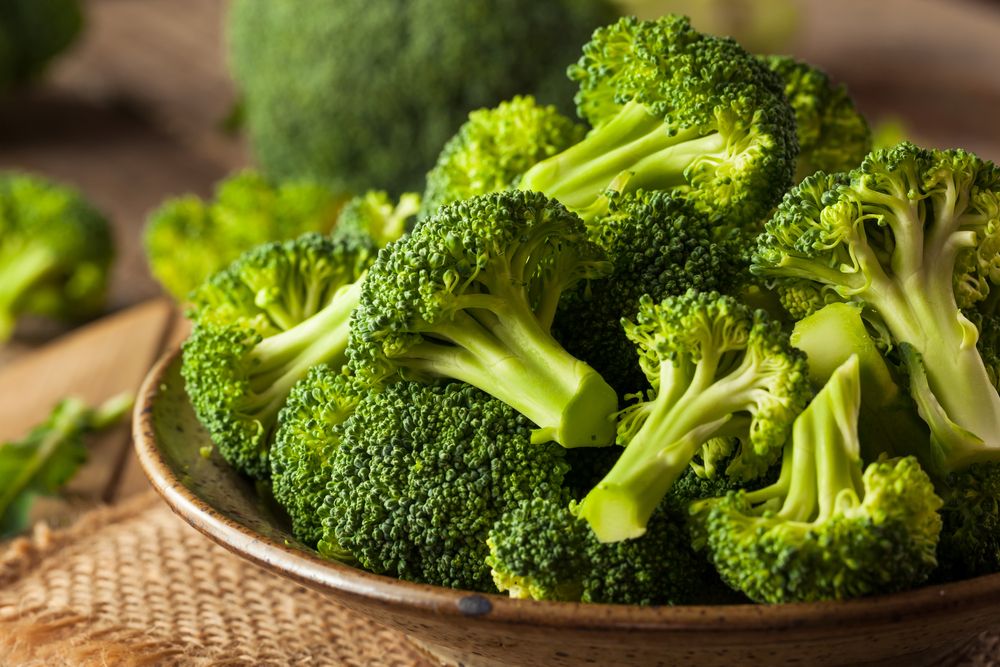
Broccoli, a beloved member of the cruciferous vegetable family, stands out for its remarkable array of health benefits. Laden with fiber, vitamins A, C, and K, beta-carotene, calcium, potassium, and iron, it also boasts a wealth of antioxidants. Like its cruciferous counterparts, broccoli contains glucosinolates, sulforaphane, and indole-3-carbinol, compounds renowned for their profound health-enhancing properties. Research published in Antibiotics highlights the myriad benefits of broccoli, including its support for heart health, promotion of eye health, bolstering of the immune system, facilitation of wound healing, and potential anti-cancer properties.

